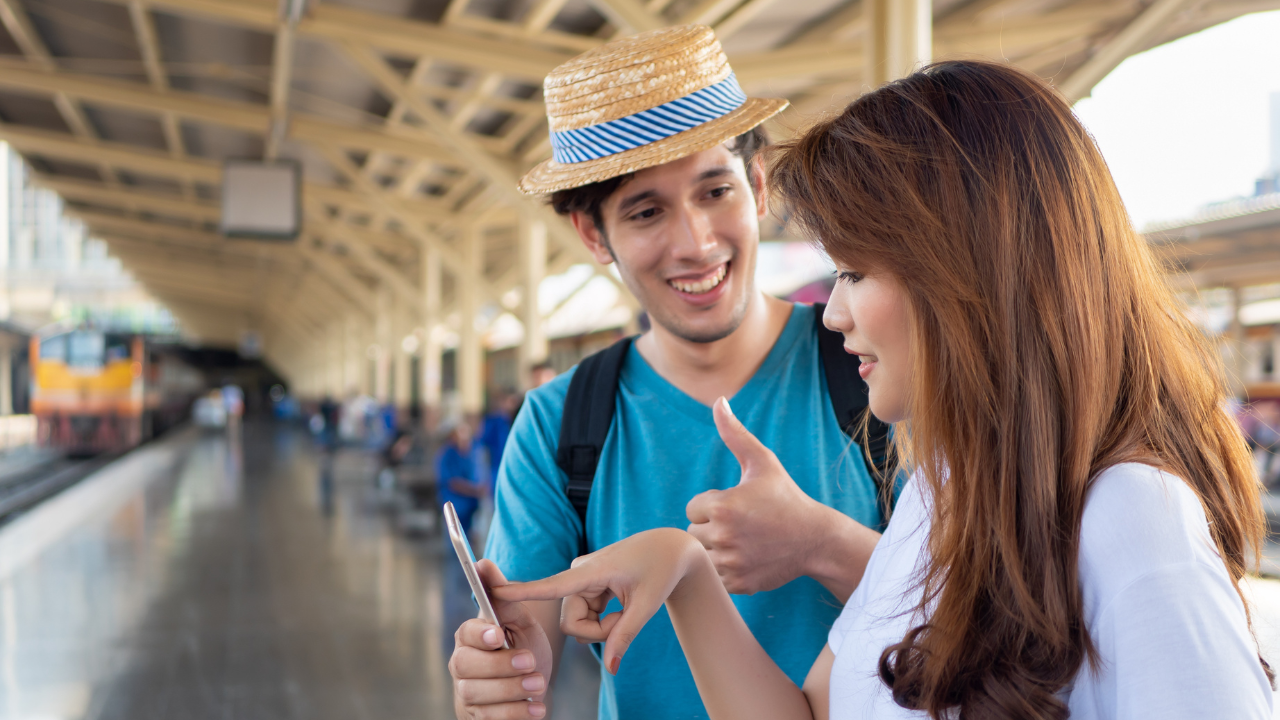We may earn money or products from the companies mentioned in this post. This means if you click on the link and purchase the item, I will receive a small commission at no extra cost to you … you’re just helping re-supply our family’s travel fund.

You might think you’re being friendly, but locals abroad might think you’re being fake. American tourists consistently rank among the most complained-about visitors worldwide, not because of bad intentions, but because everyday habits that feel normal at home read as offensive elsewhere. From volume control issues to tipping confusion, these cultural disconnects create friction that affects how Americans are perceived and treated. Understanding what triggers negative reactions isn’t about changing who you are; it’s about showing respect for the places you visit. Here are ten behaviors that foreigners genuinely find rude, backed by international observations and real experiences from locals who deal with American tourists daily.
Wearing Shoes Indoors

The surprising offense: Tracking street dirt into homes, temples, guesthouses, and even some restaurants in Japan, Scandinavia, Turkey, and Central Europe isn’t just unhygienic; it’s deeply insulting to the host and the space. In Japan, shoe removal is so important that special slippers exist for different rooms, while Nordic countries view indoor shoes as bringing unwanted pollution into clean sanctuaries. This is widely recognized as one of the fastest ways to offend hosts, as it suggests you either don’t care or view their customs as beneath you. Always look for shoe racks at entrances and follow the locals’ lead immediately upon entering any building.
Over-Enthusiastic Friendliness With Strangers

The counterintuitive problem: What Americans call “Midwestern nice” or “Southern hospitality” (greeting strangers with big smiles and “How are you?”) reads as boundary-violating or performative in Northern Europe, East Asia, and many urban centers worldwide. Locals in these regions often find American-style friendliness exhausting or insincere, with some describing it as “aggressive positivity” that feels fake rather than genuine. In these cultures, warmth is earned through time and trust, not dispensed freely to every passerby. Dial back the enthusiasm with strangers and let relationships develop naturally rather than forcing instant intimacy that makes people uncomfortable.
Inappropriate Tipping Behavior

The controversial mistake: Insisting on large tips in Japan, South Korea, or China (where tipping is considered insulting) or failing to tip in countries like Canada and certain European nations where it’s expected creates genuine offense on both ends. In Japan, servers have reportedly chased tourists down the street to return “forgotten money,” viewing tips as suggesting they can’t earn proper wages or that their service was exceptional in a pitying way. Conversely, American tourists who don’t tip where expected leave servers unpaid, as many work for tip-dependent wages. Research tipping customs before you arrive; country-specific guides can prevent these embarrassing and offensive mistakes.
Speaking at Excessive Volumes in Public Spaces

The universal complaint: Americans are consistently ranked among the loudest tourists in the world, with conversation volumes noticeably higher than locals in European cafés and Asian trains. What feels like normal conversation volume in New York or Texas comes across as shouting in Stockholm or Kyoto, where public spaces are treated like shared living rooms that deserve quiet respect. The cultural disconnect is so pronounced that it’s become a defining characteristic of American tourists abroad, often resulting in locals avoiding you or businesses asking you to lower your voice. Practice the whisper test: if people two tables away can hear your conversation clearly, you’re too loud for most international settings.
Eating and Drinking While Walking

The ritual violation: Consuming food on the go (whether it’s coffee while rushing to work or eating sandwiches on public transit) violates deeply held beliefs about food respect in Japan, Italy, Spain, and France. In Japan, walking while eating is discouraged in many districts and considered quite rude, while Italians view standing espresso as the maximum acceptable “fast” consumption. These cultures treat meals as important rituals deserving full attention and proper seating, so eating while walking signals that convenience trumps respect. Take five minutes to sit down and properly consume your food; it shows cultural awareness and prevents marking yourself as oblivious before you even speak.
Assuming Everyone Speaks English Without Trying the Local Language

The entitlement signal: Many Americans travel abroad speaking only English, rarely attempting even basic greetings in the local language. Leading with fast English idioms, speaking louder when not understood, or skipping simple words like “bonjour” or “gracias” comes across as entitled and deeply disrespectful to locals. Research shows that attempting just a few words in the local language (hello, thank you, and excuse me) dramatically increases positive interactions and opens doors that English-only approaches close. Download a translation app and learn five essential phrases before landing; locals appreciate effort over perfection and will treat you accordingly.
Being Chronically Late or Treating Punctuality Casually

The character judgment: In Germany, Switzerland, and Japan, arriving even five minutes late without advance notice is considered seriously disrespectful and suggests you value your time more than others’. While American culture often treats “fashionably late” as acceptable, punctual cultures view it as fundamentally rude. Swiss business meetings famously start whether you’re there or not, and German friends may simply leave if you’re late without warning. This isn’t just a social offense; it can damage business relationships, cause missed reservations, and brand you as unreliable before a word is even spoken. Set your watch ten minutes early and treat every appointment as non-negotiable to avoid this reputation-destroying habit.

The interrogation effect: Questions like “What do you do?” “Where are you from?” or “Are you married?” within minutes of meeting someone is standard American small talk but reads as invasive interrogation in France, Germany, and much of Asia. Europeans particularly view job-focused questions as reducing people to their economic function, while Asian cultures consider personal details too intimate for early conversations. Cultural experts note that American question patterns mirror job interviews rather than social connection, which explains why other cultures feel they’re being sized up rather than befriended. Stick to neutral topics like the weather, food, or your travel experiences until the other person offers personal information first.
Making Loud Phone Calls and Over-Sharing on Public Transit

The audio assault: Loud FaceTime calls with speakerphone blaring, oversized laughter, and personal storytelling on trains and buses disrupts the “shared quiet space” etiquette that London, Berlin, Seoul, and Tokyo residents hold sacred. Commuters in these cities consistently cite loud American phone habits as major sources of transit stress, with some describing it as “audio assault” on captive audiences who can’t escape. These cultures treat public transit like library reading rooms where everyone deserves peaceful passage, making American phone behavior stand out dramatically. Keep your phone on silent, use headphones for all calls, and save conversations for when you exit; your fellow passengers will silently thank you.
Sending Food Back as the First Response

The culinary insult: Making substitutions, requesting ingredient removals, or complaining that dishes don’t match personal preferences reads as deeply disrespectful in France, Italy, and much of Asia where chefs view their dishes as complete artistic expressions. While American dining culture embraces “have it your way” customization, other cultures see the chef as an artist whose vision shouldn’t be altered unless there’s an allergy or religious restriction. French restaurateurs have been known to refuse service to diners who request menu changes, viewing it as an insult to their expertise and centuries-old culinary traditions. Order dishes as presented, or choose different restaurants if the menu doesn’t align with your preferences; customization requests reduce cultural food traditions to fast-food status.
The Bottom Line: Respect Travels Further Than Dollars

None of these habits make you a bad person; they’re simply cultural blind spots most Americans don’t realize they have until locals start avoiding them. The good news? Once you’re aware of these behaviors, they’re remarkably easy to adjust with minimal effort. The difference between being seen as an “ugly American” or a respectful visitor often comes down to awareness, observation, and willingness to adapt. Small changes in volume, punctuality, language effort, and cultural research can transform how you’re received abroad, opening doors to authentic experiences that most tourists never access. Watch how locals behave and mirror their approach; that’s the universal key to respectful travel anywhere in the world.
Other Blog Posts You Might Enjoy
www.idyllicpursuit.com (Article Sourced Website)
#U.S #Travel #Habits #Foreigners #View #Rude #Idyllic #Pursuit
